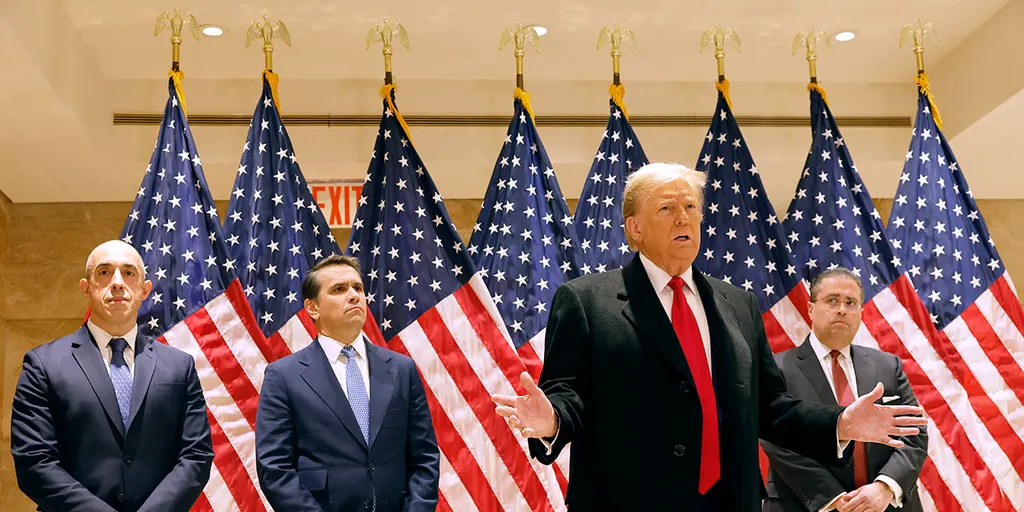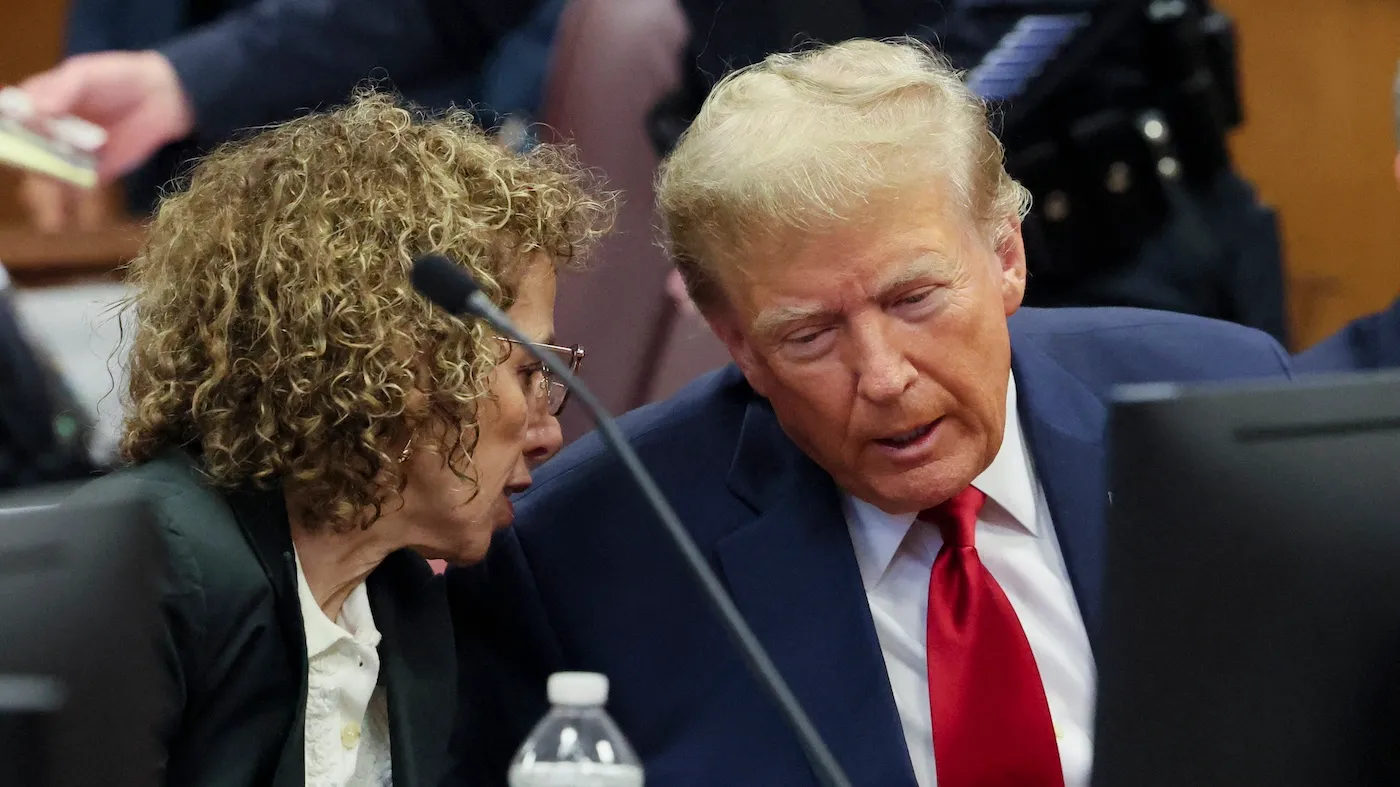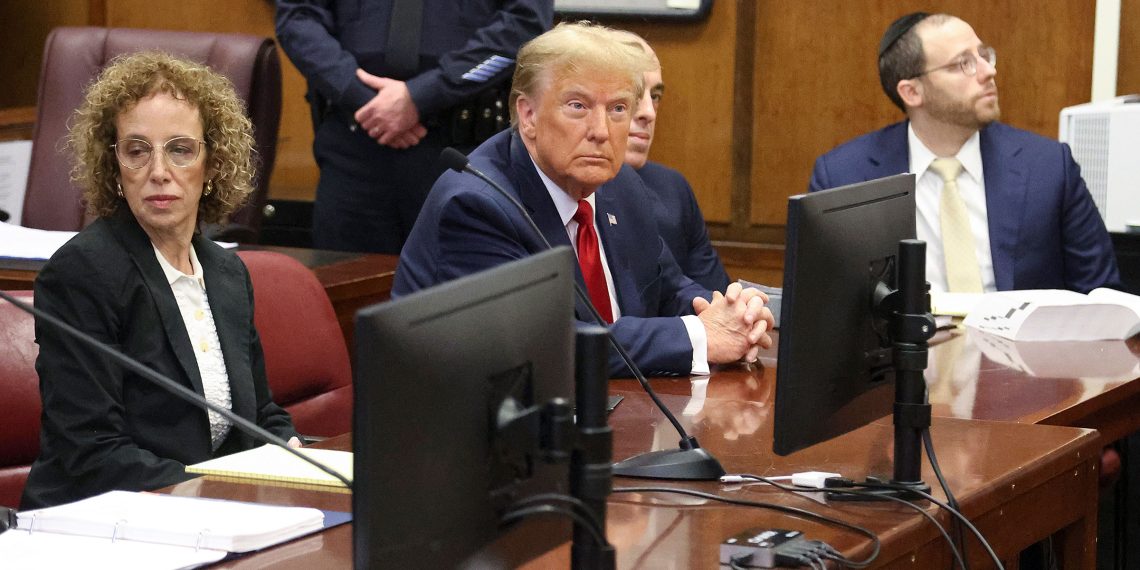Donald Trump‘s hush money trial kicks off with jury selection, presenting a daunting task in a city steeped in political fervor.
Lawyers on both sides seek impartial jurors amid the backdrop of Trump’s polarizing legacy and Manhattan’s Democratic stronghold.
While opinions on Trump run rampant, potential jurors won’t be dismissed solely based on political affiliation.

The trial marks a historic moment as Trump becomes the first U.S. president to face criminal charges. A conviction wouldn’t preclude him from future political endeavors, but it could sway voters’ perceptions ahead of the upcoming election.
Trump’s legal battles have become a cornerstone of his political narrative, with frequent social media tirades against the judiciary.
As jury selection commences, questions about Trump’s presidency dominate the proceedings, reflecting the case’s political undercurrents.
The jury questionnaire addresses attendees of Trump rallies, social media followers, and perceptions of his handling of the hush money case.
Yet, broader inquiries span professions, education, and media consumption habits. Privacy concerns prompt separate questioning for sensitive responses.

Despite efforts to maintain anonymity, potential jurors face scrutiny from both sides. Trump’s legal team scrutinizes demographics to identify sympathetic jurors, while prosecutors seek individuals aligned with liberal viewpoints.
Addressing jury selection amidst heightened political tensions poses challenges for both sides. The prosecution aims to secure a conviction in a politically charged environment, while Trump’s defense strategizes to protect his interests.
As trial consultant Jeff Frederick notes, the political climate favors the government, but a single juror could sway the outcome. With stakes high and trial strategy paramount, selecting an impartial jury remains a Herculean task for all involved.





